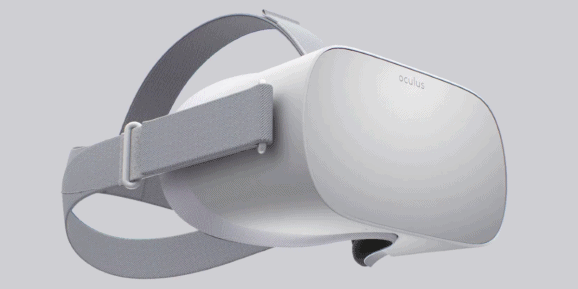
When Facebook wanted to get into the lower-end side of the virtual reality headset business, it partnered with Xiaomi — a Chinese company known for affordable, well-designed hardware — to develop a $200 standalone device released under the names Oculus Go and Xiaomi Mi VR. Now a report claims that Xiaomi has disbanded the development team behind the headset, though Facebook says that it’s not abandoning the year-old platform.
According to a report from VR enthusiast Antony Vitillo’s blog The Ghost Howls, Xiaomi laid off the entire Mi VR/Go development team, consisting of a dozen employees who would otherwise have been responsible for maintaining and evolving the platform. While Vitillo describes the news as coming from a “very reliable” source, coherent with other information he’s heard, he caveated it as a rumor since Xiaomi has not responded to requests for confirmation. We’ve independently reached out and are similarly awaiting a response from the company.
Though Facebook doesn’t comment on its partners’ business decisions, we also reached out to the company regarding Go’s future — specifically, whether Oculus will keep evolving the Go hardware alongside its other platforms, and whether it’s planning to work with Xiaomi on a second-generation Go. Without confirming Vitillo’s report or its own upcoming plans, a Facebook spokesperson told us:
We don’t comment on our future product roadmap, but Oculus Go continues to be the best way to enjoy immersive entertainment, and is a great device for anyone just getting started in VR. We’re still producing and selling Oculus Go and as always, we’ll keep our community informed on any updates to our product portfolio.
Vitillo suggests that Xiaomi laid off the Mi VR team for several reasons, including “disappointing sales and usage,” relatively low profit margins on the hardware, and comparatively little content for the Mi VR version of the device. While Mi and Go hardware can run essentially the same software, Facebook certifies and distributes Go apps through the Oculus store, leaving developers to recompile and submit their apps to Xiaomi for sale in Mi VR territories.
Assuming that the Mi VR team has been disbanded, Vitillo leaves open the possibilities that Xiaomi is walking away from low-end VR, has completed work on a followup project, or is just moving the Mi VR’s responsibilities to other people. Recent reports that Apple disbanded its AR/VR team and that Valve had taken similar measures with its VR team were subsequently contradicted by reports of new Apple AR hiring and the release of Valve’s Index headset, respectively, illustrating the potential for external misunderstandings of internal development activities. Another team — in Facebook’s case, internally or externally at Rift S partner Lenovo — could easily be working on a followup product.
That said, Oculus Go and Mi VR arguably were at development dead ends before this news. The headsets were released last year as breakthrough standalone VR hardware alternatives standing between high-end tethered headsets and low-end smartphone-dependent VR accessories. But to achieve sub-$200 entry prices, they relied on old-generation smartphone components and three degree-of-freedom (3DoF) tracking, while Facebook openly worked on a more advanced platform with newer components and 6DoF tracking. That device launched for $400 as Oculus Quest this year, leaving some to wonder whether the simpler Go had a future.
We’re awaiting comment from Xiaomi on the report, and will update this article when we hear back — likely tomorrow, based on time differences. In the meanwhile, Mi VR and Oculus Go remain in stock at stores, and as Facebook suggests, Go will continue to be sold as an entry-level model until and unless a portfolio change is formally announced. The company’s next VR/AR event, Oculus Connect 6, is scheduled for September 25 and 26 in San Jose, and some Go app support will be integrated into Quest later this year.
























